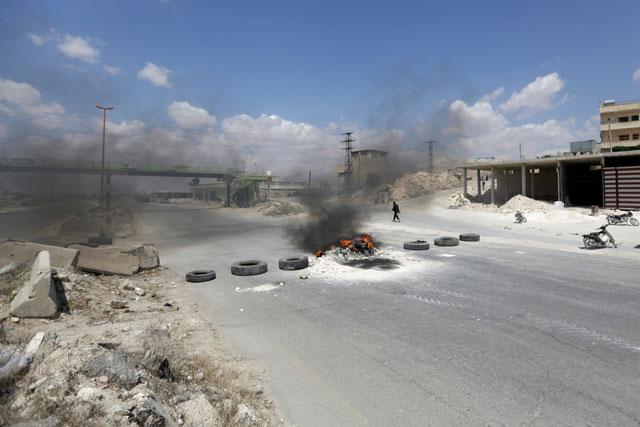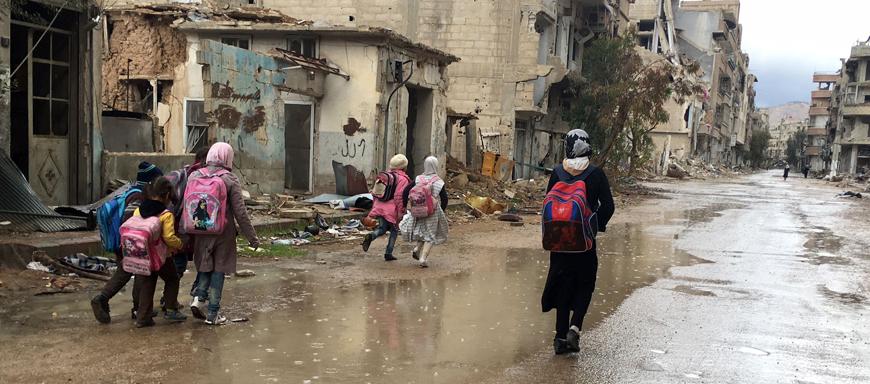You are here
UN says 'high hopes' to expand Syria aid, after airdrop trouble
By AFP - Feb 25,2016 - Last updated at Feb 25,2016
GENEVA — After helping bring aid to 110,000 people in besieged areas in Syria, the UN expressed optimism Thursday that hundreds of thousands more would soon be helped, but acknowledged a first humanitarian airdrop was unsuccessful.
A diplomatic push in recent weeks to secure access for desperately needed humanitarian aid to all of the some 480,000 people estimated to be living in besieged parts of Syria has made great strides, top UN official Jan Egeland told reporters in Geneva.
In the less than two weeks since the 17-nation International Syria Support Group (ISSG) agreed in Munich to increase humanitarian aid in parallel with a push to try to secure a ceasefire, more than 180 trucks filled with aid have reached six areas under siege from different sides.
They have thus brought assistance to just under a quarter of the 480,000 people estimated to be living in 17 besieged places across the country.
Egeland, who is the special adviser to the UN's Syria envoy Staffan de Mistura, said permission had been requested to bring aid to besieged parts of Aleppo, Homs and Eastern Ghouta.
"We have high hopes that we will be able to get through to these places," he said.
In principle, he said, it should be possible to negotiate sustained road access to all but one of Syria's besieged areas.
Egeland said he was "quite hopeful" that "this black chapter in the history of humanitarian work... will soon be over."
He pointed out that for nine out of 12 months last year, no food at all reached people in the besieged areas.
Airdrop misses target
Some 200,000 people meanwhile live in Deir Ezzor, which is under siege by the Daesh group, with whom there is no negotiation under way for access over land.
On Wednesday, the UN World Food Programme (WFP) carried out its first humanitarian airdrop in Syria to try to help the civilians stuck there, but Egeland acknowledged that the attempt had run into "problems".
WFP dropped a first cargo of 21 tonnes of food, many of the pallets "missed target, and others... the parachutes did not open and the food was destroyed", he said.
In fact, WFP told AFP that 10 of the 21 food pallets remained unaccounted for, four more were destroyed and the remaining seven landed in areas where they could not be accessed.
"The aircraft crew is highly experienced and have done numerous airdrops before but this was their first high altitude airdrop in Syria [at a height of 7,000 metres] and this operation is not without risk," WFP spokeswoman Bettina Luescher said in an email.
"As you know airdrops, especially in a war zone, are complicated," she said, stressing though that "we will try again. This was just the first attempt".
Egeland said "the best humanitarian logisticians in the world are working on how to make this lifeline to 200,000 people in Deir Ezzor, mostly women and children, work."
He said WFP was initially planning to continue the airdrops for a three-month period.
Related Articles
GENEVA — The United Nations will take the "last resort" option of air drops of humanitarian aid if access to besieged areas in Syria is not
GENEVA — The United Nations voiced concern on Thursday over stalled aid deliveries to besieged areas in Syria, with convoys delayed or surgi
GENEVA, Switzerland — The UN is intentionally providing only barebones aid in the former Daesh stronghold of Raqqa in Syria to avoid attract



















